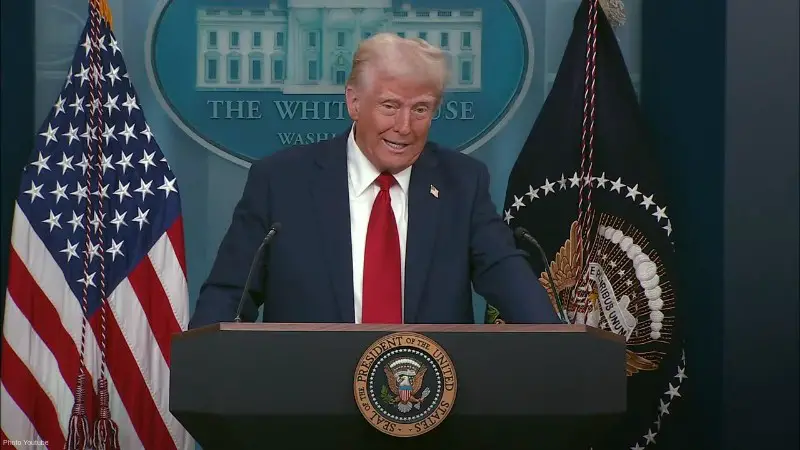The Trump administration’s decision to temporarily halt federal grants and financial assistance programs sparked confusion and chaos across the healthcare sector. With millions of dollars in federal aid at risk, health providers and state Medicaid agencies scrambled to manage the uncertainty. A federal judge’s intervention temporarily halted the freeze, but the situation continues to raise concerns about the future of crucial healthcare funding.
Key Takeaways
A federal judge’s intervention temporarily halted the Trump administration’s freeze on federal grants and financial assistance programs, providing relief to healthcare providers, but concerns about future funding remain.
- Healthcare providers and state Medicaid agencies were left scrambling due to confusion surrounding the initial announcement of the freeze, which was unclear about which programs would be affected.
- The freeze resulted in technical issues with state Medicaid portals, causing delays and uncertainty for community health centers that rely heavily on federal grants for revenue.
- Despite the temporary reprieve, healthcare providers remain uncertain about future funding due to concerns over potential future freezes or cuts, particularly given previous budget proposals calling for Medicaid cuts.
Judge halts funding freeze
On Tuesday, U.S. District Judge Loren AliKhan temporarily blocked the Trump administration’s freeze on federal funding, providing relief to healthcare providers. The injunction followed a lawsuit from nonprofits, including the American Public Health Association, arguing that withholding federal aid would harm essential public health programs.
The freeze resulted from an executive order by President Trump, aiming to review federal spending to align with conservative priorities, such as limiting diversity and inclusion programs. The initial announcement was unclear about which programs would be affected, causing concern within the healthcare sector, which heavily relies on federal grants.
Medicaid disruptions amplify worries
The confusion surrounding the freeze was exacerbated by technical issues with state Medicaid portals. Medicaid, the safety-net insurance program covering over 70 million Americans, was initially thought to be affected by the freeze, although it was later clarified that the program was exempt. Despite this, states were temporarily locked out of their Medicaid portals, which caused further uncertainty.
Community health centers rely on Medicaid for a significant portion of their revenue. In Virginia, some centers reported over 70% of their income comes from Medicaid, and without access, they feared closures and staff layoffs.
By Wednesday, many states regained access to their Medicaid portals, with Oklahoma restoring it first. However, delays persisted in other states like New York. Despite the White House’s assurance that no payments were delayed, providers remained anxious about future funding.
Federal grants essential for underserved communities
Beyond Medicaid, healthcare providers and organizations that serve underserved populations are deeply reliant on federal grants to provide care. These include hospitals, community health centers, and other facilities that depend on resources from the U.S. Department of Health and Human Services (HHS) and other federal agencies.
In Maine, the funding freeze caused panic among healthcare providers. Darcy Shargo, CEO of the Maine Primary Care Association, said many centers were unsure how long they could operate without federal funds, risking the closure of services for low-income patients.
For Denver Health in Colorado, the stakes were even higher. The hospital received $89 million in federal grants last year, and losing this funding would have severely impacted its ability to provide critical care, creating uncertainty for both staff and patients.
Reopening Medicaid portals brings temporary relief
Despite the judge’s intervention, the broader issue of long-term federal funding remains unresolved. Although access to Medicaid portals was restored, the temporary injunction leaves healthcare providers uncertain about potential future funding freezes or cuts.
Joan Alker, executive director of Georgetown University’s Center for Children and Families, highlighted the ongoing vulnerability of Medicaid funding under the Trump administration. While Medicare and Social Security benefits were explicitly protected from cuts, Medicaid has not received similar assurances, leaving its future in question.
The freeze also raised concerns about the Trump administration’s healthcare funding approach. Previous budget proposals called for cuts to Medicaid, and efforts to reduce diversity and inclusion funding have added to the uncertainty. Healthcare providers and state officials now face an unpredictable future.
The path forward for healthcare providers
The immediate threat of a federal funding freeze has been temporarily alleviated, but uncertainty about future disruptions remains. Healthcare providers are calling for clearer communication from the White House and Congress to make effective contingency plans and ensure continued care.
This uncertainty has highlighted the crucial role of federal funding in supporting community health centers, particularly for underserved populations. Providers are awaiting further court rulings and policy decisions that will determine their financial stability.
While the immediate crisis has been averted, the larger issue of healthcare funding remains unresolved. The coming weeks will be critical in determining whether this reprieve signals the end of the uncertainty or if further disruptions loom.






